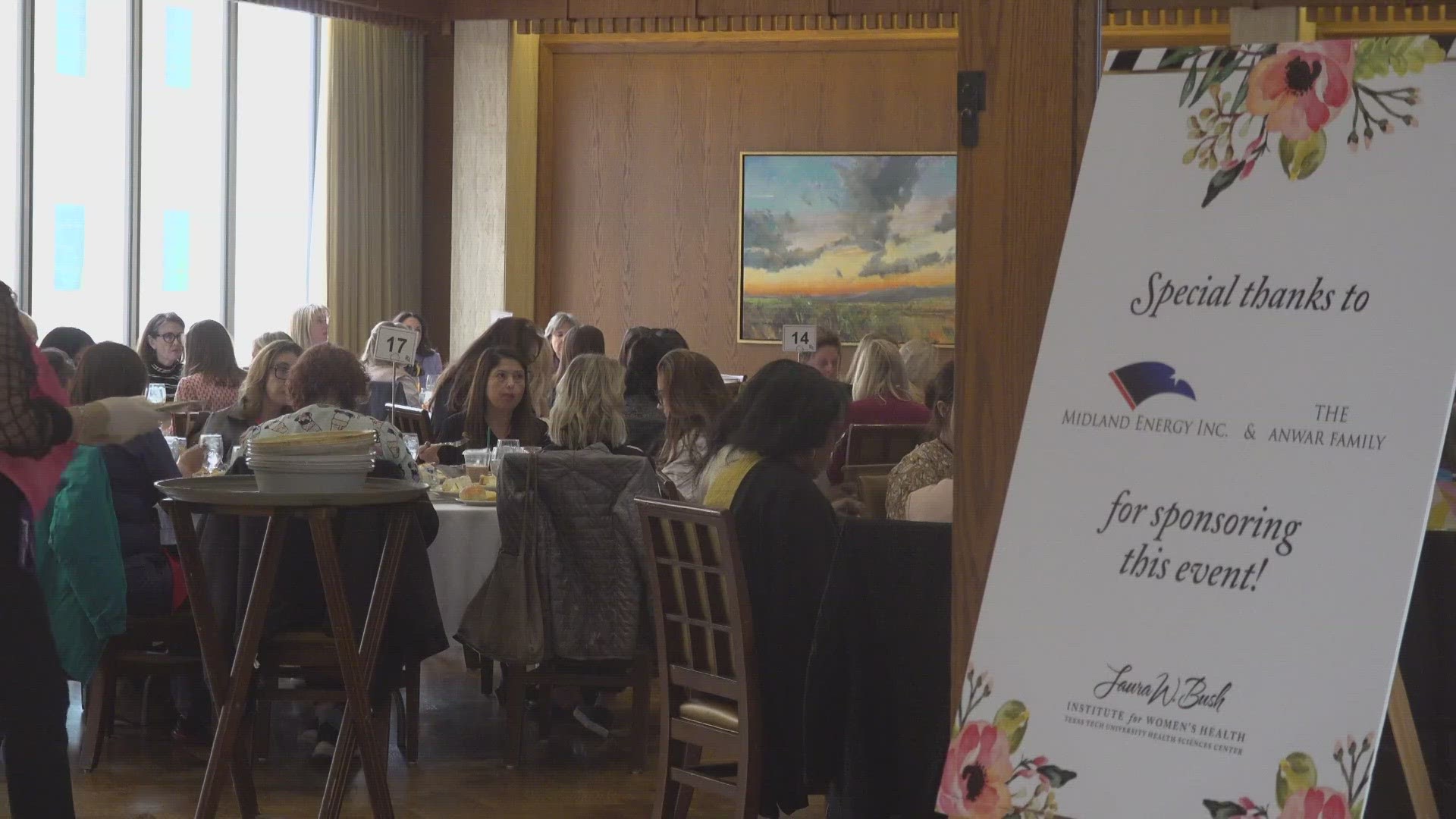MIDLAND, Texas —
The Texas Tech University Health Sciences Center (TTUHSC) and Laura W. Bush Institute for Women's Health educated the public Wednesday about the risk of heart disease in women throughout different phases of life. It was all part of the "There Is So Much You May Not Know About a Woman’s Heart!".
The event featured guest speakers Hayley Hughston, a cardiology specialist from Lubbock, and Prim Naegele, the director of the Laura W. Bush Institute for Women's Health.
"Traditionally heart disease has been thought to be a man’s problem, and it is not. It is equally just as important for women," Hughston said. "[Heart disease] is the leading cause for women's death here and also in the world; one in three women will die from cardiovascular disease."
Coronary artery disease is a common form of heart disease, according to Hughston.
"Both women and men present most commonly with chest pain, which is described as heaviness, tightness in the chest that can radiate up to the left jaw, neck and shoulder," Hughston said. "But women also present with more than one symptom that can present with palpitations, nausea, indigestion, numbness and tingling in their fingers."
According to Hughston, the risk for cardiovascular disease begins during childbearing years, ranging from 21 years old to the late 40s.
"If you develop complications, such as gestational diabetes, gestational hypertension, or preeclampsia, that can foreshadow cardiovascular events later on down the line like when women are in their 50s and 60s," said Hughston.
Back in 2001, Naegele had common symptoms of heart disease, including chest pain. According to Naegele, she was sent home after being told she had anxiety by two different doctors.
"I finally went to someone who listened to me and said, 'I think we need to look at this further,'" Naegele said. "It's a powerful reminder that if your gut instinct is telling you something's not right, to keep pushing to get the answers, you need and become your own advocate."

